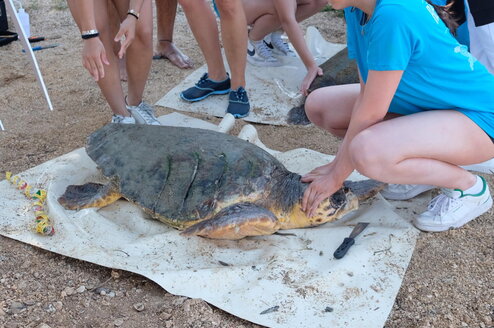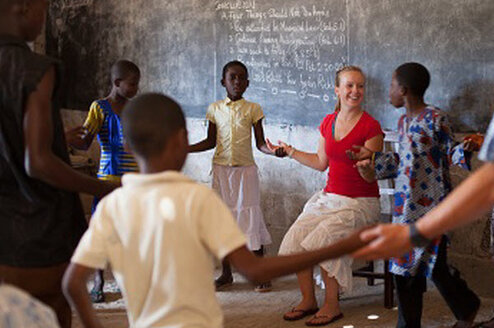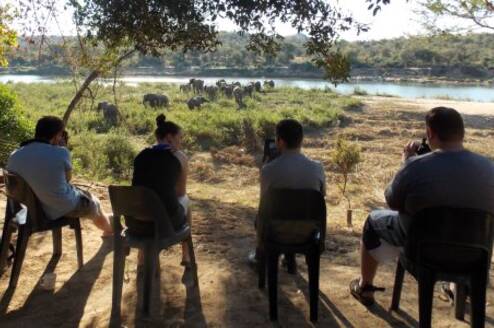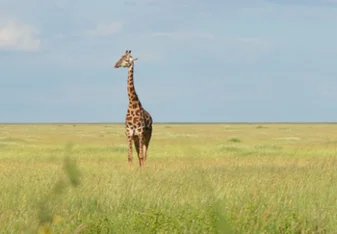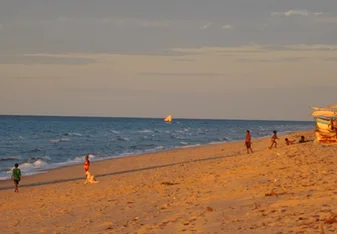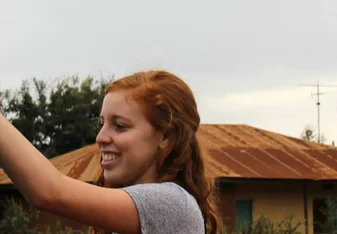High School Abroad in Rwanda
High School Abroad Programs in Rwanda
About
Rwanda is a country in central and east Africa with quite a diverse landscape. With savannas and mountains alike, as well as an active volcano, Rwanda boasts green, rolling hills throughout the entire country, earning it the name the "Land of a Thousand Hills."
There is only one cultural and linguistic group in Rwanda, the Banyarwanda. Students may have the chance to study them culturally and learn about their group in a setting unlike anywhere else in Africa.
Students may have the opportunity to volunteer in local communities, immerse themselves in the local culture by studying the first language Kinyarwanda, and learn about the Rwandan genocide and its impact on the entire country.
Rwanda is best for students interested in cultural diversity, community service, social work, international aid, and health care.
Photo credit: flöschen.
Program Types
Study
Some possible areas of study in Rwanda include:
- Healthcare
- Anthropology
- Wildlife
- African studies
- Land conservation
Students may also learn about the Rwandan Genocide that still affects the country today. This will include the social and psychological impact it has had, the origin of conflict, and national involvement in the genocide.
Their program may also send them to neighboring countries in Africa such as Uganda and Tanzania, where students will be able to further expand on their knowledge of various African cultures.
Volunteer
Rwanda offers several volunteer and service learning opportunities for high school students to take part in. Students can choose to volunteer in Rwanda on various projects such as working in the community and building infrastructure for locals to use, such as libraries to expand children’s education. They may also have the opportunity to delve in environmental or wildlife conservation during their stay.
Summer Programs
Summer programs to Rwanda may also take you to Uganda and Tanzania, as well as to multiple destinations within the country itself. The summer programs may last anywhere from 2 to 6 weeks, and may include healthcare studies, cultural studies, and courses on the history of Rwanda.
Language Immersion
Kinyarwanda is Rwanda’s first language, but French and English are the official languages. Students can choose to study Kinyarwanda or French while in Rwanda. Programs will typically take place over the course of several weeks. However, you may have the choice to study the language in a crash course lasting anywhere from 5 to 30 hours.
Language immersion may be included as a part of your study abroad curriculum or volunteer trip.
Planning Your Trip
Popular Cities
Kigali, the capital, is home to over 1.5 million people. Travelers can visit the several genocide museums that are in Kigali. The Volcano National Park in Ruhengeri is a popular destination for travelers looking to see the mountain gorillas. Butare has the National University of Rwanda. If you are studying in Rwanda, you may find yourself in this town!
Visa
A tourist visa for Rwanda is $30 USD for U.S. citizens, valid for 30 days. If you’re working or doing volunteer work in Rwanda, you’ll need to apply for a work visa. For those of you studying in Rwanda, you’ll need to apply for a student visa. Application forms and more information can be found on the Rwanda Directorate General of Immigration and Emigration website here.
Housing
Students will most likely be staying in home stays with local families. This is a wonderful way to learn about their culture, language, and way of life in an unforgettable, hands on experience.
Students may also have the option to live with program members in a shared dorm, apartment, or housing complex. Here, you will meet other like minded students and travelers and will get to share this experience with your peers.
Costs
Compared to the U.S. and European countries, Rwanda is a relatively cheap country to travel and live in. One of your biggest expenses will be the flight to Rwanda, which can start from $800 USD one-way, depending on when you fly and from which airport.
A meal at a restaurant only costs a couple of dollars, and water and transportation are usually extremely affordable as well. You can easily budget yourself on $15-30 USD a day. Keep in mind that any necessary toiletries, expensive transportation costs, medical expenses, housing, and equipment will need to be included in your plan and may alter your daily budget.
Cultural Etiquette
In Rwanda, it is considered rude to point at people, as it is common to use in reference to dogs. Rwanda is slowly changing its culture in regards to gender roles; however, it is still a male dominated society. This is especially seen more so in rural areas than in the city. In areas outside of the capital Kigali, there is a stigma against women who drink and go to bars.
Packing Tips
If traveling during the rainy season from March through May, pack boots, a rain jacket, long, comfortable pants, and long shirts in preparation for cooler weather. During the peak dry season from June through September, pack loose fitting cotton clothing that dries quickly and keeps you cool. Packing clothes that can be layered is best, as it prepares you for any type of weather.
Health & Safety
Health
Travelers should be up to date on any routine vaccinations. Check with your health care provider to determine what’s best for you, especially if traveling to multiple destinations. It is highly recommended to purchase travel insurance before traveling to Rwanda, as the medical facilities in Rwanda are not up to Western standards.
Travelers may also need to show proof of yellow fever vaccination before entering Rwanda if you’re coming from a country with a yellow fever risk, so make sure you have the yellow fever certificate before departing.
Tap water is unsafe to drink in Rwanda, so always purchase bottled water and avoid ice in drinks. Make sure you purchase any food or meals from known restaurants with good sanitation to avoid food poisoning.
Safety
Grenade attacks in Rwanda, especially in Kigali, have become more common in the recent years. U.S. citizens are strongly warned against going to the Rwanda and Democratic Republic of the Congo border because of the high risk of fighting between armed forces.
If you’re planning on visiting Mount Nyiragongo, take any necessary safety precautions, as it is still an active volcano.

